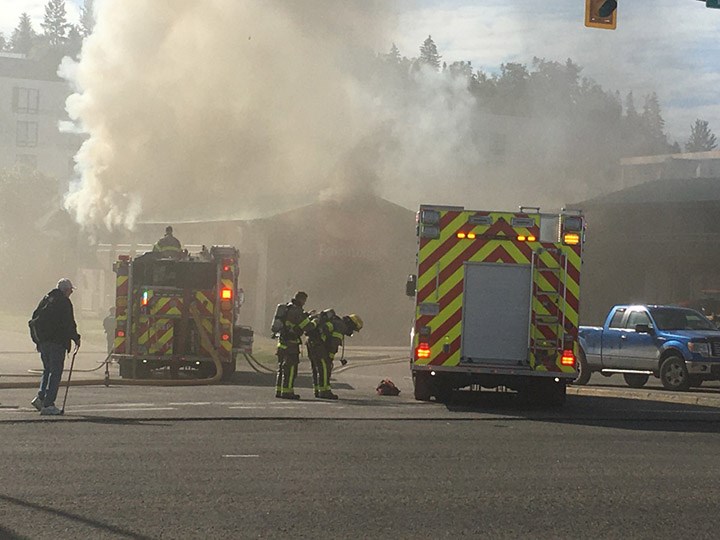Local resident Cathy Fortin was right to follow her instincts when they were telling her something wasn't right when she saw a Prince George RCMP officer confronting a person on the street, then arresting that person and putting them in the back of a police cruiser.
She was also well within her right to ask why the man was being arrested. While some may say she should mind her own business, police officers are conducting the public’s business and should be willing to be as transparent as possible (without violating privacy rules or compromising an active investigation) about their actions.
It’s her timing that was the problem.
There is a right way and a wrong way for civilians to approach working women and men in uniform.
Whether it's doctors, nurses, paramedics, police officers or firefighters, the right way is to wait until it appears safe for both yourself and them, then simply ask if now is a good time to talk.
The question provides the same level of courtesy everyone likes to receive while they are busy on the job, whether that uniform is as a grocery store employee or the city employee clearing ice from frozen drains.
The wrong way, especially for those in emergency response, is to walk up and demand to know what they're doing and why they're doing it.
During the tragic Econolodge fire last July, many people had their phones out taking pictures and video as the smoke billowed out of the downtown motel.
Unfortunately, one fellow decided he should take a stroll over to talk to a couple of firefighters as they were outfitting each other with safety equipment.
Why? What could this person possibly have to say to those firefighters that was essential information they needed to have at that very second to help them with their jobs?
Not only is it rude and disrespectful, that individual put himself in harm's way for nothing.
Over the noise of the fire, the spraying water, the sirens and the emergency vehicles, what the firefighters said to the man couldn't be heard but it was a brief chat and the individual turned around to return to the sidewalk.
In this recent police incident, Fortin has every right - as all civilians do - to question the activity and conduct of an individual police officer. But no civilians should do so in the heat of the moment.
In this case, we had our reservations to do a story. Fortin sent us a letter to the editor detailing her version of events but we didn’t want to publish a one-sided account. We asked Prince George RCMP to tell their side of the story, to explain that the officer was legally exercising his duties and that there is a process if residents feel those duties were not carried out properly.
So long as you are not obstructing officers or other emergency personnel, not putting yourself in harm's way and are on public property, you have every right to film and take pictures of first responders at work.
If you don't have a phone with you, take some notes of what's happening, when, where, licence plates and other essential details. Follow up by calling or visiting the detachment or contact the RCMP Public Complaints Commission.
It is good for civilians to expect the highest conduct from women and men in uniform, to question when it appears they may be abusing their authority and to seek accountability when wrongdoing occurs.
It is not good to confront police officers or other emergency personnel in the middle of a stressful and potentially dangerous situation, demanding answers. In the most serious cases, that could lead to criminal charges for obstruction.
Please stay back and stay safe.
Your questions and concerns are legitimate but they can wait.
- Editor-in-chief Neil Godbout



